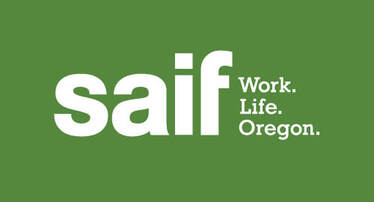 Inside Licensing: Create a Buzz With Music (Guest Column) There’s only one thing better than a cold beer and spending a leisurely afternoon in a taproom with friends enjoying craft brews, and that’s having music in the background. Better yet, live musicians playing for the crowd. Music is used by businesses everywhere because it creates an atmosphere that encourages customers to relax and enjoy themselves. Isn’t that exactly how you want your customers to feel at your establishment? They’ll stay longer, spend more, and tell friends about the great time they had. But playing music publicly in any business involves more than just turning it on, streaming it, or hiring live musicians. Music, like all intellectual property, belongs to the songwriters and composers who create it, and that ownership is protected under U.S. and global copyright laws. These laws were written with one purpose in mind: to encourage music creators to continue their craft and reward them for their unique contributions to our culture. How does a business go about getting the permission it needs to play a songwriter’s music? By working with a performing rights organization such as BMI, ASCAP, SESAC, or GMR. PROs (performing rights organizations) try to make the licensing process as simple as possible by granting permission to play millions of songs with one license and one annual fee. This saves business owners the immense time and expense of tracking down and negotiating fees with all the songwriters and composers of the music they play. Some business owners believe that, since they only play live original music, they don’t need a license. That’s not true. The term “original music” generally means music written by the performing musicians. Those musicians, however, may also be songwriters who are affiliated with BMI (most professional musicians are members of a performing rights organization). Writers join such licensing organizations because they’re the vehicles through which songwriters and composers are compensated for the public performances of their music. BMI operates on a not-for-profit basis and distributes 90 cents of every dollar in licensing fees back to its affiliates. That means even if musicians play their own music, they can register their sets and be paid through the BMI Live program. Another common misconception is that, if musicians are playing live music, they’re responsible for paying their own public performance fees. This is also not true. Just as a bar or restaurant owner wouldn’t ask their bartender to secure the liquor license, it’s not up to the musicians to secure the music license. It’s like any other license a business owner must have, and even if the musicians are hired as independent contractors, the responsibility for licensing can’t be passed on to the performers. Licensing the music you use will not only protect your business, it will also help ensure the continued creation of great music for you—and all of us—to play and enjoy. [Article originally published in Spirited Magazine, November 2019] ABOUT BMI: Celebrating over 79 years of service to songwriters, composers, music publishers and businesses, Broadcast Music, Inc.® (BMI®) is a global leader in music rights management, serving as an advocate for the value of music. BMI represents the public performance rights in over 15 million musical works created and owned by more than one million songwriters, composers, and music publishers. BMI is an Endorsed Service Provider of the Oregon Restaurant & Lodging Association.  Oregon Restaurant & Lodging Association members who meet the group eligibility requirements can receive an additional 14% discount with SAIF in the ORLA Group plan [Wilsonville, OR] – SAIF announced today final approval of a 14% discount on workers’ comp premiums for Oregon Restaurant & Lodging Association (ORLA) members who meet the group eligibility requirements. This represents the largest discount available for Oregon’s hotels and restaurants in the program. "With the cost of doing business continuing to rise, this program provides needed coverage along with significant cost savings for hospitality members,” said Jason Brandt, president and CEO of ORLA. "We are excited about the new group discount and the continued opportunities we have to jointly promote safer workplaces with our partners at SAIF.” ORLA’s endorsed service partnership with SAIF gives eligible ORLA members a workers’ compensation group discount that is validated by NCCI and approved by DCBS. As the restaurant and lodging industries face some of the most difficult workplace safety challenges, this partnership aims to reduce worker injuries and improve member’s safety programs. SAIF also declared two dividends earlier this year, one based on premium and one tied to safety performance. SAIF determines whether a policyholder dividend is appropriate based on capital levels, claim trends, and the overall economic environment. This year SAIF has seen strong investment returns and favorable trends in injury prevention and claim cost containment. “As a not-for-profit with a public mission to make workers' comp available and affordable, paying dividends is an important part of the value we offer Oregon employers,” said Kerry Barnett, president and CEO of SAIF. “In addition to dividends, we are proud to offer our customers some of the lowest rates, best-in-class service, and the largest network of workplace safety professionals of any insurance carrier in Oregon,” said Barnett. Ask your agent for an ORLA Group quote or contact SAIF directly at 888.598.5880. About SAIF SAIF is Oregon's not-for-profit workers' compensation insurance company. Since 1914, we've been taking care of injured workers, helping people get back to work, and striving to make Oregon the safest and healthiest place to work. For more information, visit the About SAIF page on saif.com. Oregon Restaurant & Lodging Association Takes Legal Action Against the City of Bend to Protect Lodging Tax Dollars Intended for Tourism Promotion Update November 2019: The City of Bend has appealed the decision by the Deschutes County Circuit Court after ruling in favor of ORLA and our fellow plaintiffs. Arguments for the appeal were heard on November 19, 2019, and we await further decision from the courts. The law firm Karnopp Peterson is representing ORLA through the appeals process. ORLA continues to promote the appropriate use of local lodging tax dollars by local jurisdictions. Update May 2018 - A Deschutes County judge ruled that the City of Bend broke the law by redirecting restricted lodging tax dollars to street maintenance. As a result of the court hearing, $350,000 that had been reallocated to road repairs will be directed back to tourism promotion. ORLA thanks the firm Karnopp Petersen LLP for their excellent representation in this case. On May 8, 2018, the Judge heard arguments from the city’s attorney and an attorney representing the Oregon Restaurant & Lodging Association and two local hotels that sued the city in September. The Oregon Restaurant & Lodging Association (ORLA) filed a lawsuit September 26, 2017, against the City of Bend for diverting the City’s room tax revenues away from tourism promotion and reducing the allocation for tourism promotion below what is required by law. ORLA is challenging the validity and implementation of a recent Bend City Ordinance which amends the percentage of room tax revenue the City spends on the promotion of tourism and improperly diverts restricted room tax revenues to road maintenance. “Cities must follow the restrictions in place for disbursement of the lodging tax revenues they collect,” said ORLA President & CEO Jason Brandt. “Unfortunately, Ordinance NS-2291 results in Bend being out of compliance with state law. The vast majority of tourism revenues in Bend can already be spent on general fund purposes so we hope our lawsuit results in acknowledgment from the courts that this recent act is in violation of Oregon law and must be undone.” Bend City Ordinance NS-2291 violates state law (Oregon Revised Statue 320.350) in one or more of the following ways: a) 9% of the City’s 10.4% city room tax rate has a set of restrictions for appropriate use of those funds. Within the 9% city room tax rate, the City is statutorily required to spend 30 percent on tourism promotion and tourism related facilities. b) The remaining 1.4% city room tax rate is subject to a statutorily required 70% investment in tourism promotion and tourism related facilities. “Lodging operators should be recognized as financial partners of local governments,” said Brandt. “As tourism becomes more successful, so does the tax revenue provided to local governments to invest in the projects important to local residents.” A report from Longwoods International shows for every $1 invested in tourism promotion, $237 is generated in economic impact and $11 in tax revenue to the benefit of Oregon residents. ORLA is engaged on a state and local level, helping local municipalities realize that shifts in tourism promotion investments can do more harm than good. Brandt argues there is a direct correlation between tourism promotion and a community’s own tax revenue. “Tourism promotion dollars are crucial to keeping Oregon’s visitor destinations top of mind. Local communities stand to lose significant tax dollars for their general funds if tourists choose to travel elsewhere.” In 2003, the Oregon State Legislature passed HB 2267, mandating 70% of new or increased local lodging taxes be directed to tourism promotion or tourism related facilities. At that time, the City made the commitment to fund tourism promotion with 30% of the initial 9% tax rate in Bend. In 2013, the City’s residents approved Measure 9-94, which increased the City’s room tax rate from 9% to 10.4%. That 1.4% increase in tax rate is subject to the restrictions established in HB 2267. This past May the City passed an ordinance, in violation of the law, changing the allocation of tourism dollars. “The City claims their new allocation of lodging tax dollars still follows state law. This is incorrect,” said Brandt. “There is an error in the total investment they are required to make in tourism promotions and/or facilities.” The hospitality industry sees transportation investments as a crucial contributor to Oregon’s continued economic success. ORLA looks forward to working with Bend and other communities to help identify appropriate revenue streams to fund transportation investments including the unrestricted portion of lodging taxes. For more information, contact ORLA President & CEO, Jason Brandt, at 971.224.1501. ### The Oregon Restaurant & Lodging Association represents approximately 2,500 members, and advocates for over 9,900 foodservice locations and 2,200 lodging establishments in Oregon. The foodservice and lodging industry is responsible for 173,700 jobs bringing in over $10.8 billion in annual sales and generates over 54% of the annual tourism dollars spent in Oregon.
Related News: |
Categories
All
Archives
June 2024
|
Membership |
Resources |
Affiliate Partners |
Copyright 2024 Oregon Restaurant & Lodging Association. All Rights Reserved.
8565 SW Salish Lane Suite 120 | Wilsonville, OR 97070-9633 | 503.682.4422 | 800.462.0619 | Contact Us
Site Map | Accessibility | Privacy Policy
8565 SW Salish Lane Suite 120 | Wilsonville, OR 97070-9633 | 503.682.4422 | 800.462.0619 | Contact Us
Site Map | Accessibility | Privacy Policy

 RSS Feed
RSS Feed


